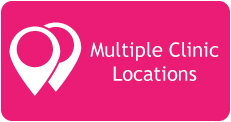Wheat Allergy
A wheat allergy is an allergic reaction that occurs when food containing wheat is eaten, for example bread, cakes, beer etc. If you have a wheat allergy your immune system mistakes these foods containing wheat as harmful, which causes the immune system to react adversely triggering a chain of events and symptoms. Allergic reactions to wheat and other cereals are most common in infants and usually resolve within the first few years of life. If you have a food allergy, eating a tiny amount of the offending food can cause a severe reaction, often within minutes, and can be life-threatening. A standard blood or skin-prick test can tell you if you have a wheat allergy, but cannot show whether you have wheat intolerance or not.
Symptoms of a wheat Allergy
Symptoms may include; itching, irritation or swelling around the mouth or throat, an outbreak of a rash or hives on the skin, watering or itching of eyes, stuffy nose or problems breathing, nausea, vomiting, cramps, diarrhoea or anaphylaxis.
Treatment Of A Wheat Allergy
Your first assessment with the dietitian will explore your dietary, exercise and lifestyle habits, medical history, medications and symptom history. Our dietitians will analyse your food diary and identify potential sources of wheat which should be excluded from your diet. They will provide you with a list of alternatives to ensure that your diet remains balanced.
Our Expertise
Complete avoidance of wheat is the primary treatment for a wheat allergy. As wheat can be found in almost anything – from sausages to ice cream, excluding wheat from your diet entirely can be quite a challenge. Our dietitians have the relevant expertise and knowledge to help you overcome this challenge; and will provide you with the necessary guidance and advice to ensure you adhere to a wheat free diet.





